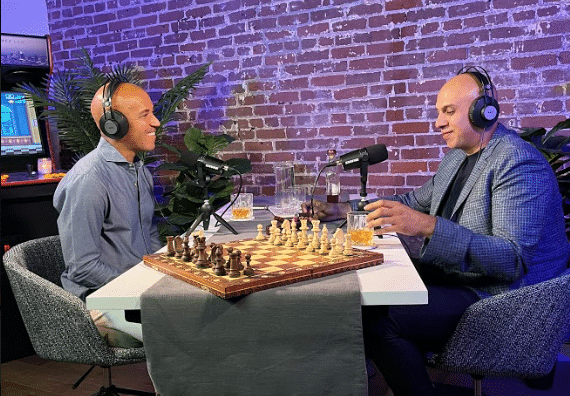Join Gabriel Sepulveda-Sanchez on this episode of Beyond the Bar as he speaks with leading Los Angeles personal injury attorney John Stenson about trying cases that aren’t slam dunks, a twist on a dog bite case, and the importance of jury trials for personal injury cases.
Lawyers know that the legal profession is a constant learning experience. Even the experts are always learning – because no two cases are exactly alike. Every case brings new challenges and new lessons. Not just lessons about the law but personal and business lessons, too.
As we talk about in the podcast episode, John is no stranger to complicated trials. One of the biggest lessons he’s learned? When you take a case to trial, you’re investing in that case. So make sure you’re comfortable with losing whatever it is you’re investing.
This is especially true if you’re a solo practitioner or part of a small legal practice.
Click here to listen to the podcast episode now.
How to Handle the Hard Cases: MIST Trial Example
You always hear about the hotshot lawyers who get huge settlements in catastrophic injury cases. But the real mark of a good lawyer is someone who can get a decent verdict out of a case that they actually have a high chance of losing.
John’s recent minimal impact soft tissue (MIST) case was one of those. It was no easy ride. The damages weren’t nearly as catastrophic or dramatic as other, more clear-cut cases. It ended up being a huge learning experience for the team. As John points out:
“It’s funny when I think about that case, because of the expression ‘ignorance is bliss.’ If we’d known how bad that case was… We were like, this is a great case. We knew we had our problems, but we had such a level of confidence going into it. And we wanted to put it all on the line. But we had no clue how bad the case was until we started talking to other people about it. The bonding… was a great experience.”
When it comes to John’s experience in trying cases that aren’t easy wins, the second-biggest takeaway is to consider whether you can really afford to lose. Don’t go overboard hiring your own experts or taking on other major expenses that leave you underwater.
A Unique Dog Bite Case: Challenges and Lessons Learned
How was John’s dog bite case different from other dog bite cases?
Normally, dog bite cases get settled on strict liability. But not this one, because the dog belonged to a guest who allowed it off-leash on a hotel’s property. The victim sued the hotel owner, who argued that they had no duty of care because they had no notice of the dog.
The other complicating factor? John’s star witness had a checkered past.
To John’s surprise, this ended up not being a problem.
What Is the Benefit of Focus Groups?
Focus groups played a huge role in John’s MIST case during voir dire and jury selection.
The biggest takeaway from the focus group experience? Some of the things that we attorneys obsess about being terrible end up not being a huge issue.
“Our star witness had a checkered past and [the jurors] weren’t going to think she was credible. But when we spoke to the focus group about it and we gave them the facts and background about what happened, I was comforted that it wasn’t a huge issue. A lot of the things that you often focus on aren’t that important to jurors. We think it comes down to this one little factor, but they really had a perspective on the case.”
Sometimes jurors really aren’t thinking about the stuff you’re worried about.
The Importance of Trying Personal Injury Cases
Most personal injury lawyers prefer to settle out of court. Believe it or not, John imagined himself more of a transactional lawyer, not standing and arguing in front of juries.
Jury trials often require a more delicate approach. Not only that, but they can be a source of stress and anxiety because of the stakes involved – and the aspect of performance. You’re living life on the edge every time your pulse rushes while giving your closing statements.
When you stand in front of a jury, you’ve got to tell a story, stick to themes, and let your points sink in. Silence can be just as powerful as the words you wield in court. This is an entirely different skill to cultivate compared to transactional work.
But jury trials are important, even with all the complications they bring.
When you confront your fears of public speaking in court, with all the butterflies in your stomach, you can feel that this is what you signed up for – to be a voice for the voiceless. It feels good to teach insurance companies a lesson and hold them accountable. Even when you get distracted trying to do your job and pay your loans, that is the epitome of being a lawyer.
Listen to Gabriel and John discuss these topics on the podcast now.

